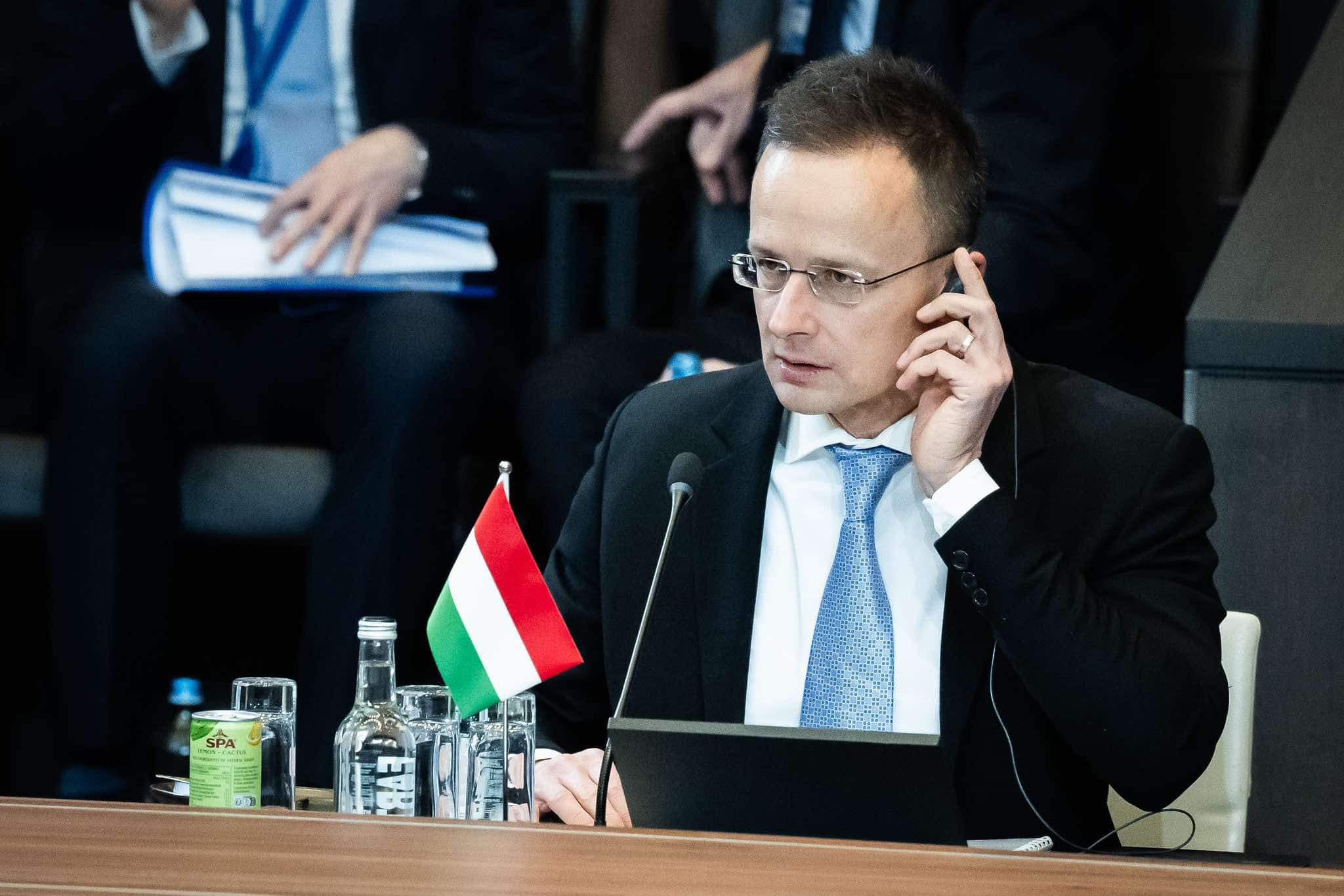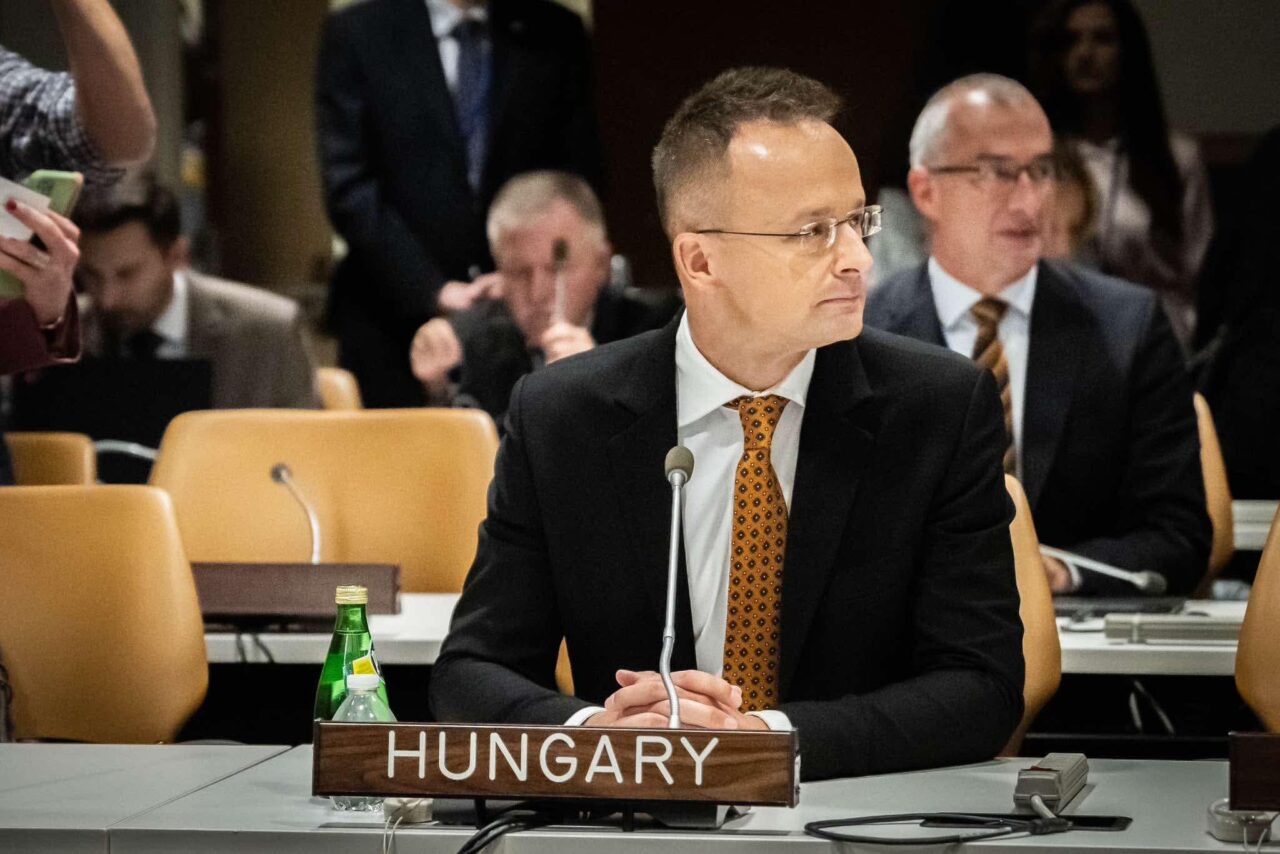FM Szijjártó: Defending Europe doesn’t start in Ukraine

Europe’s strategy of bolstering its defence capabilities must not mean a covert increase in financial and military support for Ukraine, Péter Szijjártó, Hungary’s foreign minister, said in Brussels on Friday, warning that such an approach would prolong the ongoing war in the country.
There is no doubt that Europe must strengthen its defence capabilities, Szijjártó told a press conference after a meeting with his NATO counterparts, according to a ministry statement, adding that Hungary was “doing particularly well in this area”. Defence spending has exceeded 2 percent of GDP for the third year now, he said, adding that more than 40 percent of the defence budget went towards the procurement and upgrade of military equipment.
Szijjártó noted that only two-thirds of NATO’s 32 member states exceed the 2 percent target, seven spend less and four spend exactly 2 percent of their GDP on defence. “So there’s a lot of work left to do if we consider bolstering European defence capabilities an important goal, and we do,” the minister said. Szijjártó said it was “unacceptable” that most allies “interpret the EU’s militarisation within the context of the ongoing war and see it as being part of the strategy of prolonging the war”.

Defending Europe does not mean defending Ukraine
“We also don’t accept the position that defending Europe means defending Ukraine,” he said. “Boosting the European Union’s defence capabilities means just that, not investment in the defence capabilities of a non-NATO and non-EU country.”
Szijjártó said Ukraine was not defending Europe but rather itself. “Ukraine is the one at war; there’s not a single EU or NATO member state under attack.” “Portraying Ukraine as the first European line of defence is simply falsehood,” he said. “Ukraine is defending itself, and it is doing so heroically … but that’s not a basis for us to try to portray the Ukrainian defence as if it’s defending Europe.”
The minister said Europe’s strategy of bolstering its defence capabilities must not mean a covert increase in financial and military support for Ukraine, warning that this would prolong the war.
He said the development of European defence capabilities would only be effective if it also meant achieving peace, arguing that the 800 billion euros allocated towards beefing up defences would have to be paid, but this was “not feasible alongside Europe’s current economic output”. The only way the situation could improve, he added, was if the war in Urkraine was brought to an end.
Europe’s task is to support Trump
He said the one thing Europe would have to do to achieve peace was to support the peace efforts of US President Donald Trump, who, he said, was now trying to break with “the failed policy of the last three years”.
Meanwhile, Szijjártó said it was “concerning and alarming” that certain NATO member states were withdrawing from treaties banning “various horrible deadly weapons”. He noted that after Lithuania announced its withdrawal from the convention banning cluster munitions, the Baltic states and Finland announced that they were pulling out of the convention banning anti-personnel landmines.
“We are deeply concerned and alarmed by this,” Szijjártó said. “We believe the use of such vile and deadly weapons should continue to be restricted in the future.”
Read also:
- Hungarian citizenship at risk for dual citizens: new bill about suspension, expulsion
- Orbán cabinet would like to take up a gigantic, EUR 10bn loan from the USA, Japan, China or Qatar – check out the details HERE







